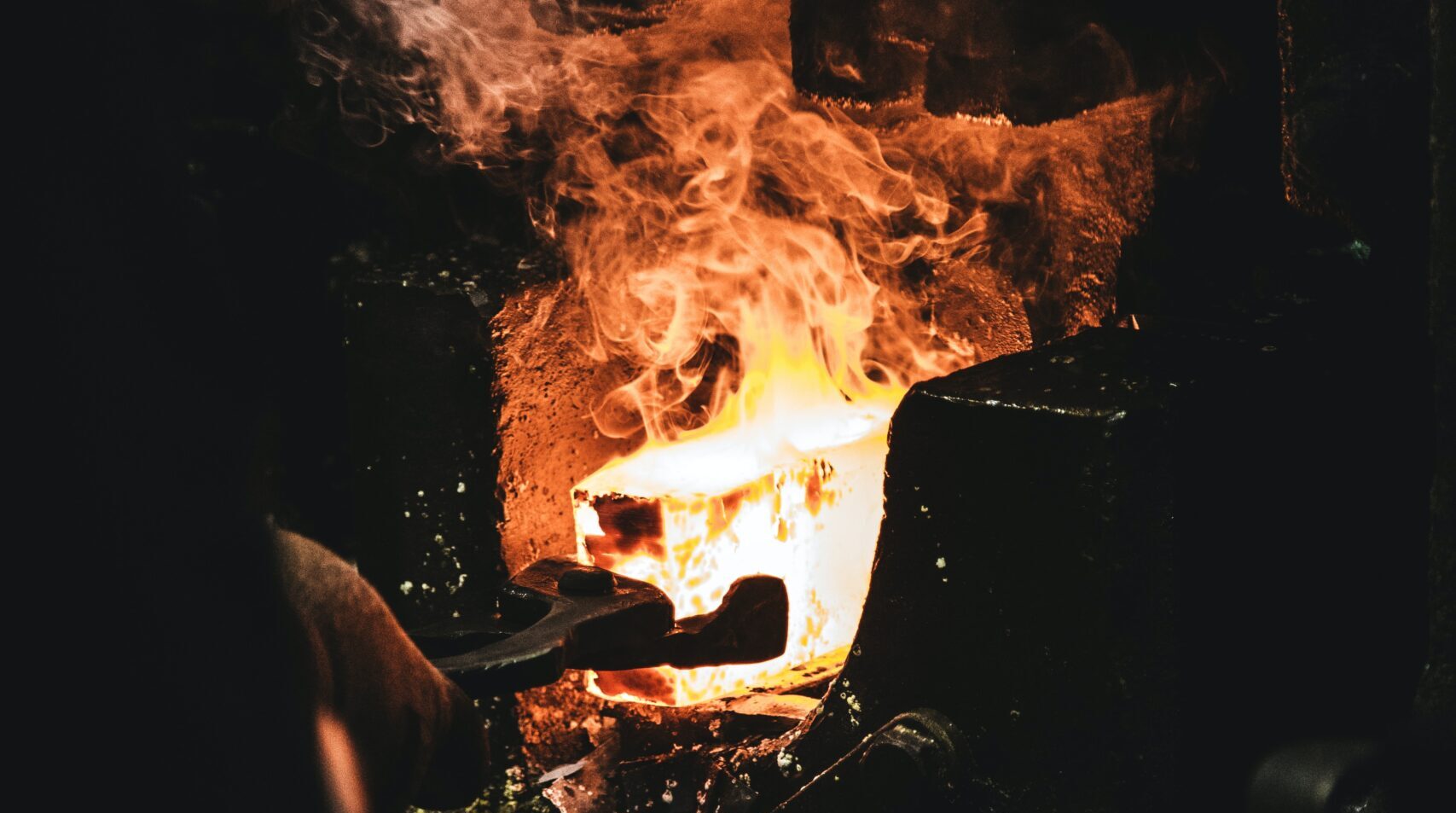Introduction
An anvil is a fundamental tool for bladesmiths and blacksmiths, serving as a sturdy surface for shaping, forging, and refining metal. Choosing the right anvil is crucial for achieving accurate and efficient work. In this article, we will explore the different types of anvils available for bladesmiths, as well as some of the best options on the market.
Types of Anvils for Blacksmiths & Bladesmiths
Anvils come in various shapes, sizes, and materials. Here are some common types of anvils used by bladesmiths:
- London Pattern Anvil: The London Pattern anvil is one of the most widely used and recognized types of anvils. It features a flat working surface, a horn for bending and shaping, and a hardy hole and pritchel hole for holding tools and accessories. London Pattern anvils are known for their versatility and are suitable for a wide range of blacksmithing and bladesmithing tasks.
- German Pattern Anvil: German Pattern anvils have a similar design to London Pattern anvils but often feature a different horn shape and a larger face. They are known for their robust construction and are favored by bladesmiths who work with heavier materials or require a larger working surface.
- Farrier’s Anvil: Farrier’s anvils are specifically designed for horseshoeing and are commonly used by blacksmiths and bladesmiths who work with lighter and smaller projects. They typically have a smaller working surface, a rounded horn, and a pritchel hole. While they may not be as versatile as other types of anvils, they can be suitable for bladesmiths who work on smaller knives or require portability.
- Railroad Track Anvil: Railroad track anvils are improvised anvils made from sections of railroad tracks. While they may not have the same features or durability as traditional anvils, they can serve as a budget-friendly option for hobbyists or beginners. Railroad track anvils are suitable for lighter forging and shaping tasks but may not provide the same level of precision or stability as purpose-built anvils.
Best Anvils for Bladesmiths
When it comes to selecting the best anvils for bladesmiths, there are several reputable brands and models to consider. Here are some top choices:
- Ridgid-Peddinghaus Anvils: Ridgid-Peddinghaus anvils are highly regarded in the blacksmithing and bladesmithing community. They are known for their exceptional craftsmanship, durability, and precision. Ridgid-Peddinghaus anvils are made from high-quality tool steel and undergo a meticulous manufacturing process, resulting in anvils that provide excellent rebound and a smooth working surface.
- Emerson Anvils: Emerson anvils are another popular choice among bladesmiths. They are made in the USA and crafted from 41/40 tool steel, known for its toughness and resilience. Emerson anvils are renowned for their flat face, precise edges, and reliable performance. They come in various sizes and weights to suit different bladesmithing needs.
- Nimba Anvils: Nimba anvils are hand-forged and designed by professional blacksmiths. They are made from high-quality ductile iron with a hardened steel face, providing durability and excellent rebound. Nimba anvils are known for their attention to detail and craftsmanship, resulting in anvils that offer a smooth working surface and precise edges. They come in different sizes and styles, including double-horn and single-horn options, to accommodate a range of bladesmithing requirements.
- Old World Anvils: Old World anvils are meticulously handcrafted and forged from high-quality materials, such as tool steel or ductile iron. These anvils are designed to replicate the classic European-style anvils, featuring a flat working surface, a horn, and hardy and pritchel holes. Old World anvils are known for their exceptional balance, stability, and overall craftsmanship, making them a popular choice among bladesmiths.
- NC Tool Co. Anvils: NC Tool Co. offers a range of anvils designed for both blacksmithing and bladesmithing. Their anvils are made from high-grade ductile iron and feature a hardened steel face for durability. NC Tool Co. anvils are known for their affordability without compromising on quality and performance.
Considerations when Choosing an Anvil
When selecting an anvil for bladesmithing, there are a few key factors to consider:
- Weight: Anvils come in various weights, and choosing the right weight depends on the type of work you do and your personal preference. Heavier anvils provide more stability and reduce vibrations, which can be beneficial for precise forging. However, lighter anvils offer greater portability.
- Material: Anvils are typically made from tool steel or ductile iron. Tool steel anvils are known for their durability and longevity, while ductile iron anvils provide good performance at a more affordable price point.
- Working Surface: Look for an anvil with a flat and smooth working surface, free from imperfections or dents. This ensures optimal contact and control during forging and shaping.
- Features: Consider the additional features you may require, such as a horn for bending and shaping, hardy and pritchel holes for holding tools and accessories, and a good-quality base or stand for stability.
Conclusion
Choosing the best anvil for bladesmithing is a critical decision that can greatly impact the quality and efficiency of your work. Consider the type of work you do, your preferences, and your budget when selecting an anvil. The London Pattern, German Pattern, and Farrier’s anvils are popular choices for their versatility, while brands like Ridgid-Peddinghaus, Emerson, Nimba, and Old World offer top-quality anvils designed specifically for bladesmithing needs.
Remember to assess factors such as weight, material, working surface, and additional features when making your decision. Investing in a high-quality anvil will not only enhance your bladesmithing experience but also ensure durability and precision in your work for years to come.
